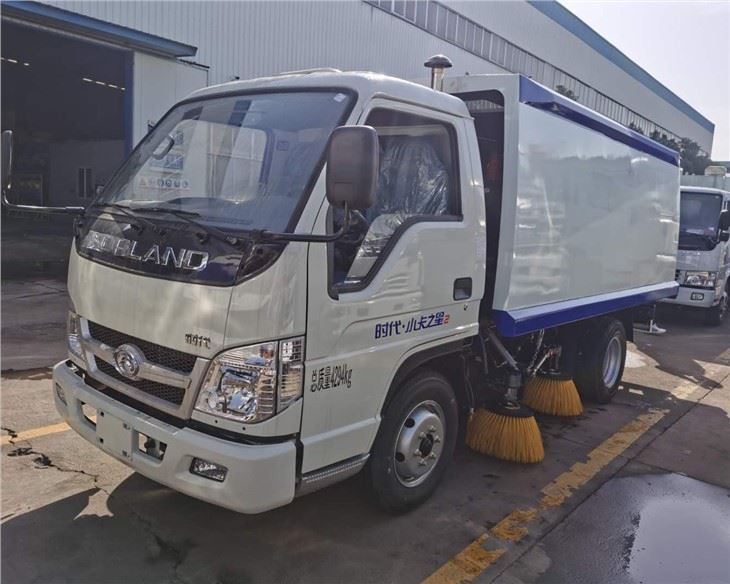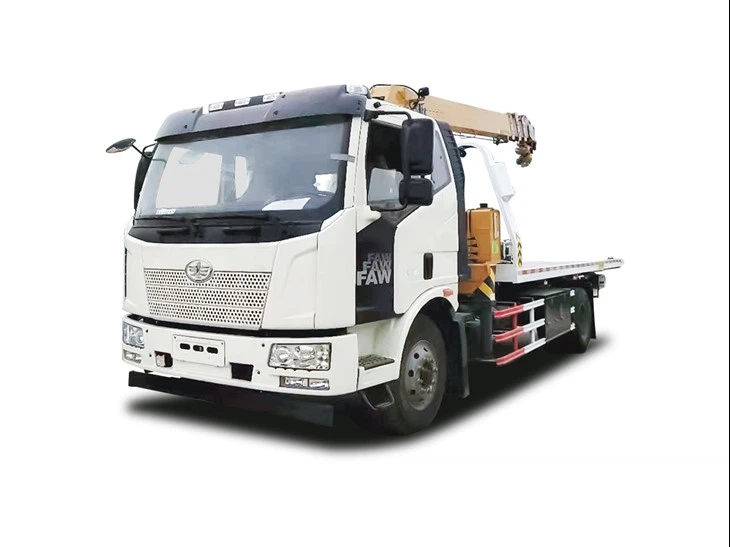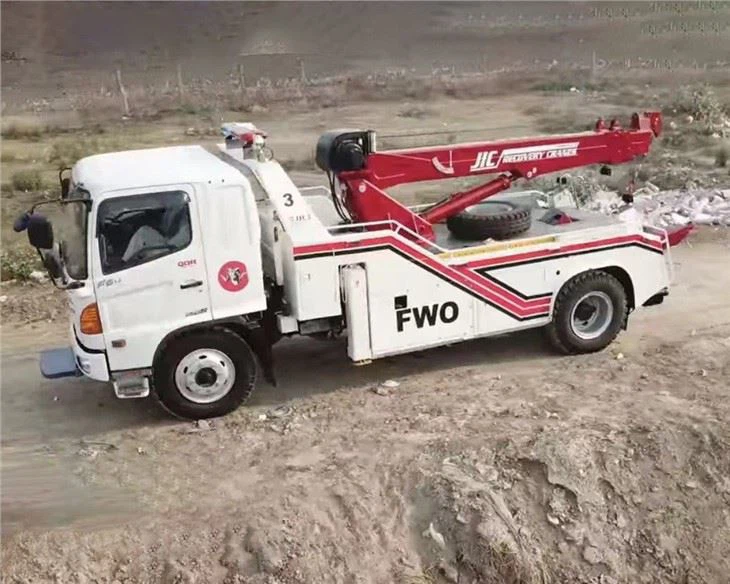Everything You Need to Know About Road Sweeper Lorries

Road sweeper lorries play a crucial role in maintaining cleanliness and safety on our roads. These specialized vehicles are designed to remove debris, dirt, and other contaminants from various surfaces, ensuring that urban and rural areas are not only visually appealing but also safe for pedestrians and vehicles. With increasing urbanization and focus on cleanliness, the demand for road sweeper lorries has surged. This article delves into the various aspects of road sweeper lorries, their types, benefits, and much more.
What is a Road Sweeper Lorry?
A road sweeper lorry is a specialized vehicle equipped with mechanical devices to clean roads, parking lots, and other paved surfaces. They are often used by municipalities, private companies, and construction sites to ensure cleanliness and hygiene.
Key Components of Road Sweeper Lorries
Understanding the components of a road sweeper lorry is essential to appreciate how they function effectively. Here are the key components:
- Brooms: These are rotating brushes that sweep debris from the surface.
- Suction System: A powerful vacuum system that collects the debris and stores it in a hopper.
- Water Tanks: Most road sweepers have water tanks to control dust during the sweeping process.
- Chassis: The base that holds all components together and facilitates movement.
Types of Road Sweeper Lorries
There are different types of road sweeper lorries tailored for various cleaning needs:
1. Truck-mounted Road Sweepers
Truck-mounted road sweepers are built on a truck chassis and are commonly used for city street cleaning. They provide a high cleaning capacity and can be used for both urban and rural areas.
2. Compact Road Sweepers
These smaller units are ideal for narrow streets, sidewalks, and areas with limited access. They are maneuverable and can operate in tight spaces.
3. Ride-on Sweepers
Ride-on sweepers are designed for larger areas like parking lots or warehouses. Operators ride on these machines, allowing for longer operational periods without fatigue.
4. Vacuum Sweepers
These are specifically designed for heavy-duty cleaning tasks, using a powerful vacuum system to extract dirt and debris from the surface.
5. Mechanical Broom Sweepers
Mechanical broom sweepers rely on rotating brushes to redefine the area’s cleanliness, ideal for heavy debris cleaning but less effective in fine dust control.
Benefits of Using Road Sweeper Lorries
Opting for road sweeper lorries comes with numerous advantages:
1. Enhanced Safety
Maintaining clean roads reduces the risk of accidents resulting from debris and dirt. Effective street cleaning enhances visibility and improves traction for vehicles.
2. Environmental Impact
Regular use of road sweepers helps manage pollutants, preventing debris from entering storm drains and ultimately protecting local water bodies.
3. Economic Efficiency
Investing in road sweeper lorries can lower maintenance costs associated with repairing roads damaged by debris accumulation.
4. Improved Aesthetic Appeal

Clean streets contribute to a community’s overall attractiveness, enhancing the quality of life for residents and visitors.
How Road Sweeper Lorries Operate
The operation of road sweeper lorries involves several key steps:
1. Pre-Operation Checks
Before operating a road sweeper lorry, drivers perform pre-checks to ensure all systems are functional, including the broom, suction, and water systems.
2. Sweeping Process
Once on location, the sweeper begins its work by lowering the brooms to the ground, rotating them to gather debris and directing it towards the suction nozzle.
3. Debris Collection
The suction system collects the debris, which is then stored in the hopper. The collected material can be disposed of later, whether in landfills or for recycling.
4. Post-Operation Maintenance
After the operation, drivers perform maintenance on the vehicle, including emptying the hopper, cleaning the brushes, and conducting mechanical checks.
Tips for Maintaining Road Sweeper Lorries
Proper maintenance is crucial for the longevity and efficiency of road sweeper lorries. Here are some practical tips:
1. Regular Inspection
Perform scheduled inspections to ensure all components are working correctly. Check the hydraulic systems, brushes, and suction components.
2. Scheduled Cleaning of Filters
Regularly clean and replace filters to maintain the suction system’s efficiency and prevent blockages.
3. Lubrication
Ensure all moving parts are adequately lubricated to avoid wear and ensure smooth operation.
4. Monitor Fluid Levels
Regularly check and refill hydraulic fluid and water levels to maintain performance during operation.
5. Professional Servicing
Have the road sweeper lorry serviced by a professional periodically to catch any maintenance issues early.
Examples of Road Sweeper Lorries on the Market
Different manufacturers produce various models of road sweeper lorries. Here are a few examples:
| Model | Type | Key Features |
|---|---|---|
| Schmidt Swingo 200 | Compact Road Sweeper | Compact size, suitable for narrow streets |
| Johnston CX200 | Ride-on Sweeper | High cleaning efficiency, large capacity |
| Hako Citymaster 1250 | Truck-mounted Sweeper | Flexible attachments, excellent maneuverability |
| Scarab Minor | Vacuum Sweeper | Powerful suction capabilities, versatile design |
Hiring a Road Sweeper Lorry: What to Consider
If you’re considering hiring a road sweeper lorry for your cleaning needs, keep these factors in mind:
1. Volume of Work
Establish the size of the area to be cleared and the amount of debris expected to ensure you rent the appropriate type of sweeper.
2. Type of Sweeper
Choose a sweeper type that best suits your needs. For example, compact sweepers are ideal for tighter spaces.
3. Duration of Use
Consider how long you’ll need the sweeper. Many companies offer daily or weekly rates, and understanding your timeline helps manage costs.
4. Maintenance Support
Ensure the rental company provides support in case of mechanical failure during your rental period.
Future Trends in Road Sweeper Technology
The industrial sector is continuously evolving, and road sweeper technology is no exception. Here are some anticipated trends:
1. Electric Road Sweepers

As electric vehicle technology advances, we can expect more eco-friendly electric road sweeper options. These vehicles will offer similar performance without harmful emissions.
2. Integrated Smart Technology
Future road sweeper lorries may come equipped with smart technology, providing real-time performance tracking, maintenance alerts, and GPS navigation for optimized routes.
3. Automated Sweepers
Automation is another promising area. Fully autonomous road sweepers could improve efficiency by utilizing sensor technology to identify debris and create cleaning routes automatically.
4. Improved Dust Control Systems
As regulations on dust emissions tighten, advancements in dust control systems within road sweeper lorries may become standard to minimize airborne particles effectively during operation.
FAQs About Road Sweeper Lorries

1. How often should road sweeper lorries be used?
The frequency depends on the traffic volume and local conditions. High-traffic areas may require daily sweeping, while rural areas can be serviced weekly or monthly.
2. Can road sweepers work in the rain?
Yes, most road sweeper lorries can operate in light rain. However, heavy rainfall may impede their effectiveness and could lead to clogged systems.
3. What types of debris can road sweepers handle?
Road sweepers can handle various debris types, including leaves, stones, litter, and sand. However, they may struggle with larger items that require manual removal.
4. Is training necessary to operate a road sweeper lorry?
Yes, proper training is crucial for operators to safely and effectively maneuver the vehicle and perform maintenance tasks.
5. Can road sweepers clean in urban environments?
Absolutely! Road sweepers are primarily designed for urban areas, and specialized models can navigate narrow streets and congested conditions.
6. What maintenance is required for road sweeper lorries?
Regular inspections, cleaning filters, lubricating moving parts, and monitoring fluid levels are essential maintenance tasks needed to keep sweeper lorries running efficiently.
